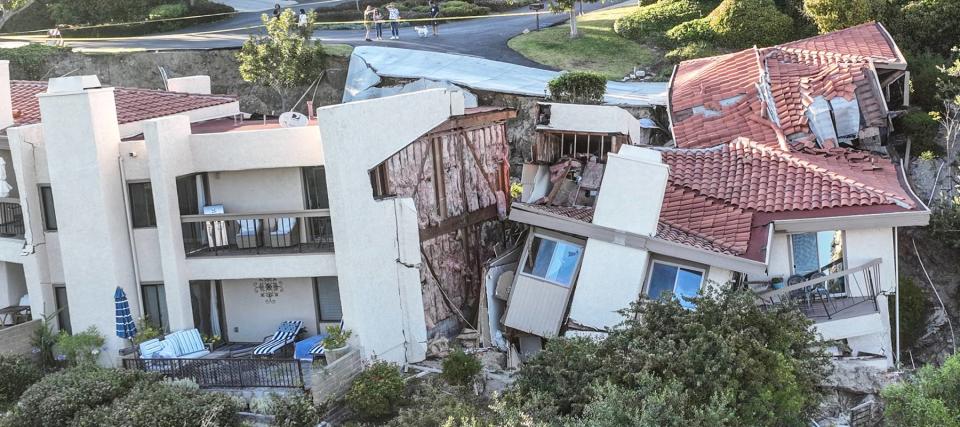
There’s been an uptick in major storms lately. In 2023, for example, there were 20 named storms in the Atlantic basin, compared to an average of 14 per hurricane season, according to the National Oceanic and Atmospheric Administration. In 2022, there were 14 named storms, but in 2021 there were again 21 and in 2020 there were 30.
But tropical storms and hurricanes aren’t the only natural disasters that hit Americans. The U.S. Geological Survey reports that nearly 44% of the U.S. is at risk of landslide activity.
Don’t miss
-
Car insurance premiums in America are through the roof — and only getting worse. But 5 minutes could have you paying as little as $29/month
-
Commercial real estate has beaten the stock market for 25 years — but only the super rich could buy in. Here’s how even ordinary investors can become the landlord of Walmart, Whole Foods or Kroger
-
These 5 magic money moves will boost you up America’s net worth ladder in 2024 — and you can complete each step within minutes. Here’s how
It’s one thing to have your home sustain damage following a major weather event. But what if an event like a landslide occurs that destroys your home completely? Are you still responsible for paying your mortgage? And will your homeowners insurance company pick up the tab?
You’re not off the hook
When you take out a mortgage, you commit to paying that loan back until its balance is whittled down to $0. This obligation exists whether your home is livable or not. Similarly, it exists whether your home is standing or not.
Of course, the risk of not paying a mortgage is having your home foreclosed on. If your home is no longer standing, you may be inclined to just default on your mortgage and let your bank take your non-existent home away. But one consequence to foreclosure is extensive credit score damage.
A foreclosure typically stays on your credit report for seven years. During that time, you might struggle to not only get a new mortgage, but borrow money in general. And since landlords tend to perform credit checks on prospective tenants, you may struggle to rent a home following a foreclosure.
Similarly, you’re still on the hook for homeowners association (HOA) fees if your home is destroyed. Blowing those off could eventually lead your HOA to foreclose on your home, causing the same credit score damage as a bank-driven foreclosure.
Read more: Rich, young Americans are ditching the stormy stock market — here are the alternative assets they’re banking on instead
Will homeowners insurance pick up the tab?
While homeowners insurance policies may cover storm damage, some natural events are often excluded. Flood damage is generally not covered under a regular policy unless there’s a separate flood rider added on. Similarly, earth movement events like earthquakes and landslides are usually excluded from standard homeowners insurance policies.
It may be possible to buy a difference in conditions (DIC) policy that covers the aforementioned events. In that case, if your home is destroyed, your insurer may cover the cost of replacing it.
But if you don’t have a separate policy covering landslides, you shouldn’t expect your homeowners insurance company to pay following one. And in areas that are prone to landslides, a DIC policy may be hard to come by.
Your options following a landslide
If a landslide destroys your home and your insurance policy won’t cover the damages, you may be in for a financial blow. But there may be ways to soften it.
First, see if your mortgage company will at least allow you to put your loan into forbearance. This gives you the go-ahead to pause your monthly payments without being flagged as delinquent. And it buys you some time to figure out your next steps.
You may also be eligible for government assistance, depending on the situation at hand. The Federal Emergency Management Agency (FEMA), for example, provides assistance to eligible households impacted by natural disasters.
You may be entitled to funds through FEMA to cover temporary housing or be given a temporary housing unit to occupy, so it definitely pays to apply. If you’re not eligible for aid through FEMA, there may be a state agency you can turn to for relief.
What to read next
This article provides information only and should not be construed as advice. It is provided without warranty of any kind.
